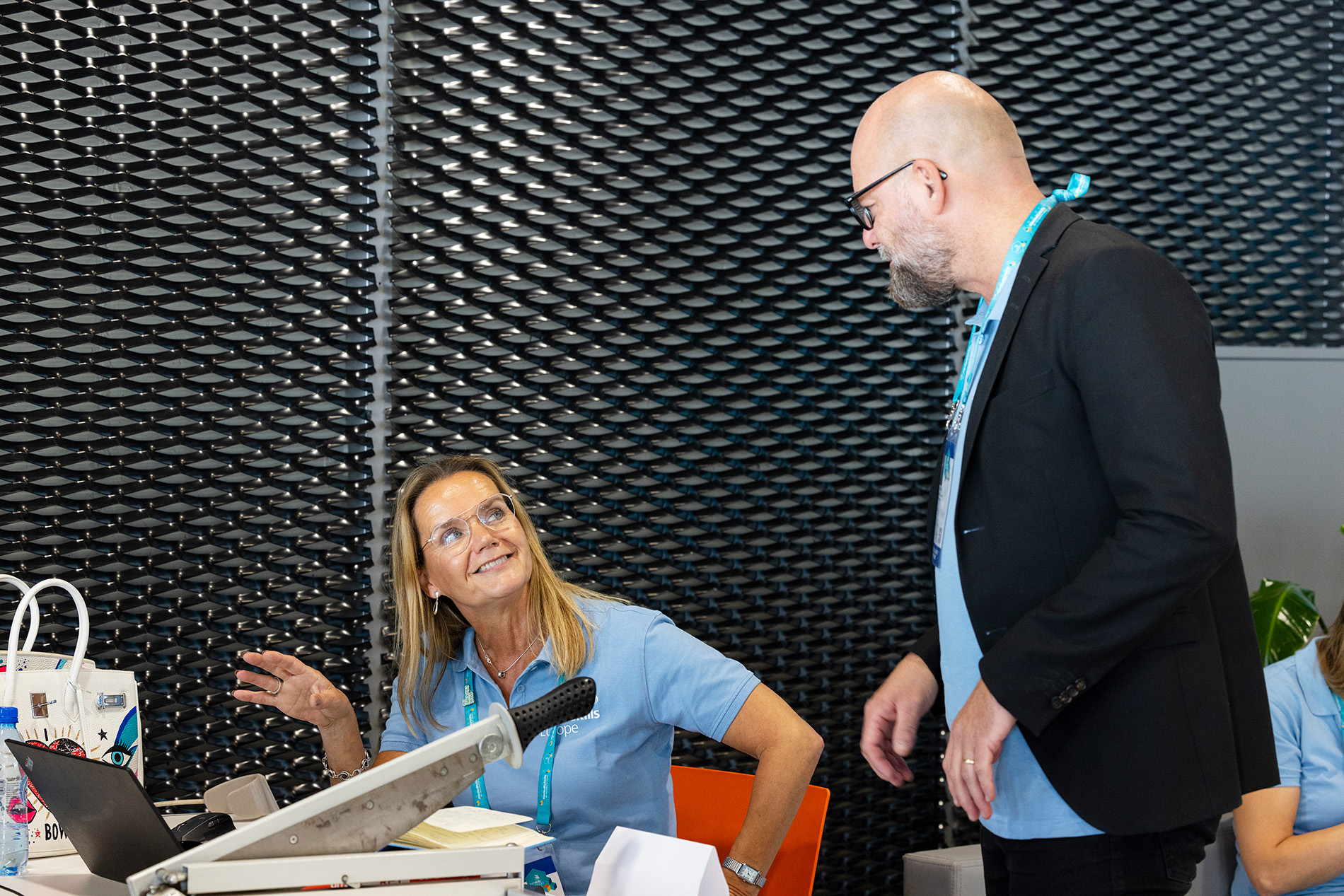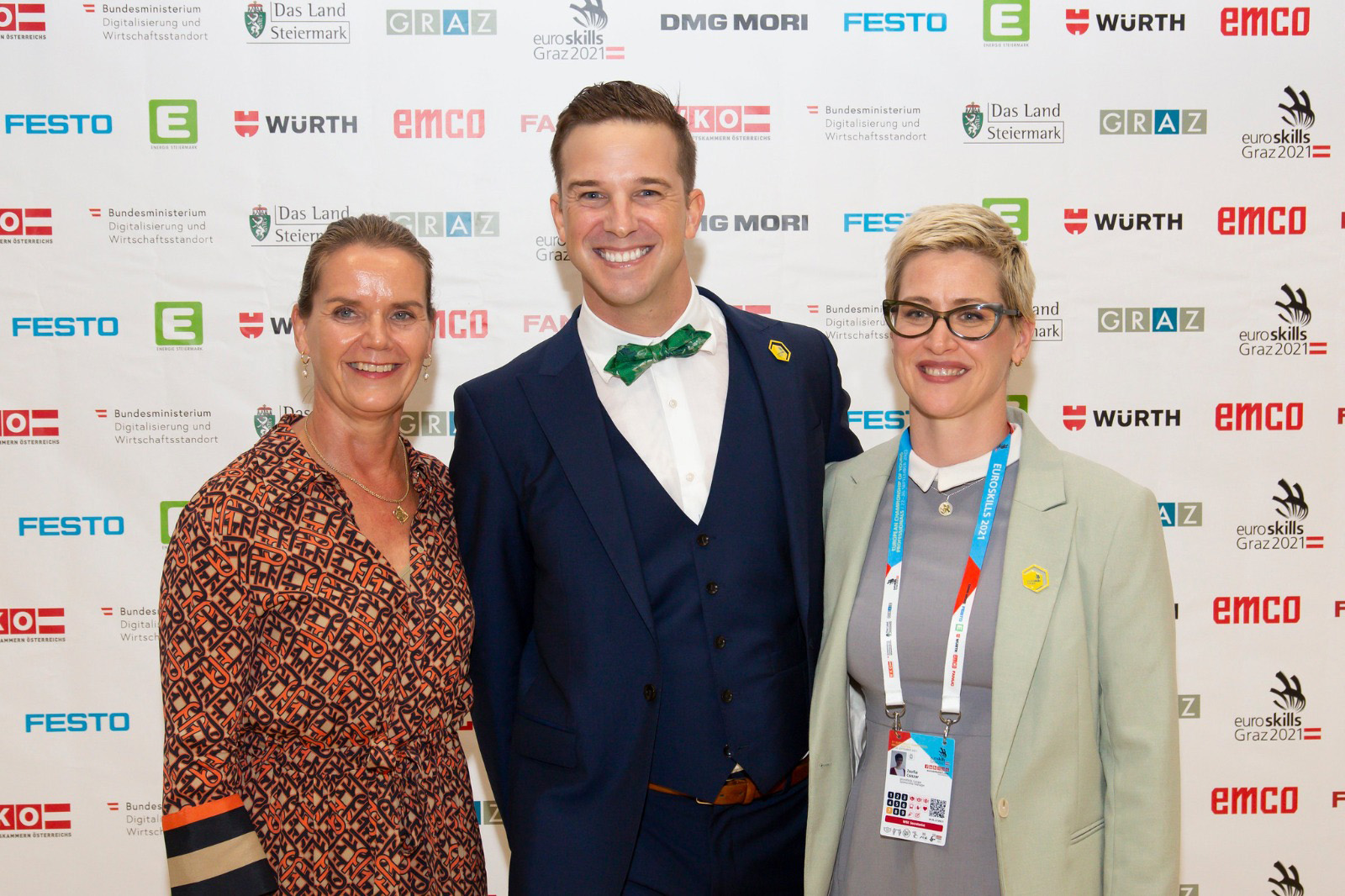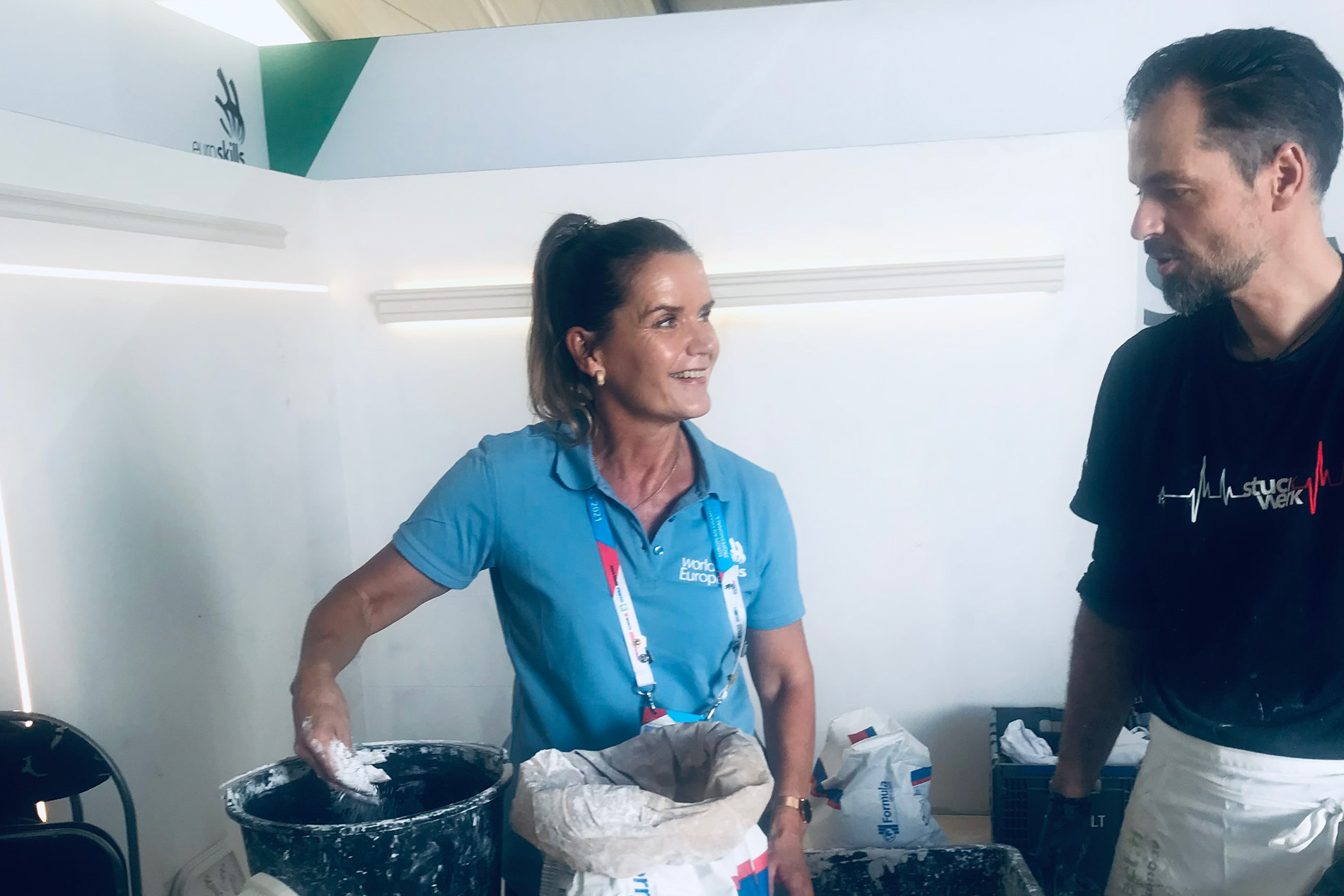New skills and happy encounters at the WorldSkills Europe Secretariat
In addition to her daytime work, Skills Finland's Office Manager Maria Atzmon worked part-time at the WorldSkills Europe Secretariat in 2018–2023. WSE is the background organisation for the EuroSkills competitions. In the interview, Maria tells us what she was able to experience over the years.

Maria and the then Head of Event and Communications Nicki Quist from the EuroSkills Herning 2025 organisation.
How did you end up working for WorldSkills Europe?
WSE announced a vacancy on its website in spring 2018. I stumbled on the announcement half by accident and, after a moment's reflection, brought it up with Eija Alhojärvi, the CEO of Skills Finland at the time. She was encouraging and said that I should definitely apply and that we could agree on working arrangements separately with Skills Finland. I gave it a few more days and sent the application on what I think was the last possible day. The interview was conducted remotely in May during the small hustle and bustle of the Taitaja competition in Tampere. I was interviewed by Stefan Praschal from Austria, who was a member of the Board of Directors. Apparently, the interview went well, as I started working on 15 June 2018. EuroSkills Budapest in autumn 2018 was my first competition in a WSE role.
What kind of tasks did your work involve?
My first title was Administration and Membership Services Coordinator, which was changed to Director of Administration of Membership in 2022. I worked in the international community: in addition to me, there were six people in the secretariat, including two from England, two from the Netherlands, one from Italy and one from Hungary.
My job description was very versatile, including meeting and travel arrangements for board members and the secretariat. I acted as secretary for the Board of Directors, general and strategic meetings, and, if necessary, for other ad-hoc meetings and took minutes of them in English. I also prepared the meeting documents for the meetings together with the Executive Director, sent the invitations and made other meeting arrangements.
I was the contact person of the secretariat for the member states. During the competitions, I was the convener and coordinator of the extended secretariat and responsible for the Member Support activities. For countries interested in WSE membership, I told them what being a member means, what it obliges them to do and what the application process is like. Sometimes I also had to notify and justify why membership was not possible. The induction of new member states and their delegates was also part of my role. I was a member of the secretariat at the EuroSkills Progress Meetings, which monitored the progress of the competition arrangements, and carried out evaluation visits regarding the venues of the General Assemblies. I attended several dozen meetings abroad every year.
The interview continues after the photo.

Members of the WSE Secretariat from left: Director of Administration of Membership Maria Atzmon, Director of Marketing and Communications Tom York, and Director of Sponsorship and Partnership Zsofia Csiszar. Photo taken at EuroSkills Graz in 2021.
What did you learn?
Although people say that you cannot teach an old dog new tricks, I think I learned a great deal during the five and a half years. I learned to see Skills activities from a different and wider perspective. I learned how to act in an international secretariat where most meetings are held remotely, apart from a few in-person meetings a year, and everyone acts independently and according to their own schedules. We had joint Zoom meetings in the secretariat every two weeks.
I learned that in a large international heterogeneous organisation, it is really important to be diplomatic and to be able to express yourself simply and clearly, both in writing and verbally. After all, English is the second or third language for most. I also learned new technical skills, as we had to suddenly do everything remotely due to the coronavirus and organising meetings for more than 30 member states requires new technical competence.
Writing the minutes of meetings was often laborious, as the meetings had a habit of meandering around, there were many participants and debaters, and we jumped from one agenda point to the next. It was good exercise, however, both in terms of picking and summarising the right information and in terms of English.
The transfer of EuroSkills competitions away from St. Petersburg due to the war caused additional work, as a new competition organised had to be found on a swift schedule, which required exceptional support from the secretariat. All in all, I learned that there is never a need to panic, but to identify the problem and find the best possible solution together. I also learned that you can and must ask for help.
The interview continues after the photo.

Testing the skill requirements under the guidance of the Plastering and Drywall Systems category's Workshop Manager.
Did your work bring something new to Skills Finland?
I believe that my work at WSE benefited Skills Finland for the reasons mentioned above. Over time, I believe that it will be even more useful once the Abilympics 2027 arrangements get properly underway. Knowing the entire EuroSkills network also helps when working at Skills Finland. I've never been one to rush things, but the years at WSE might have made me even calmer – everything always works out.
What kind of memories do you have from your years at WSE?
All the trips with the skilled, hard-working but relaxed secretariat come to mind, and how we tackled the challenges posed by the coronavirus and the Russian-Ukraine war. Above all, I remember the happy encounters with the Skills community in various meetings, during the weeks of organisation and at the actual competitions. Places changed, but the people remained largely the same, enthusiastic and friendly.